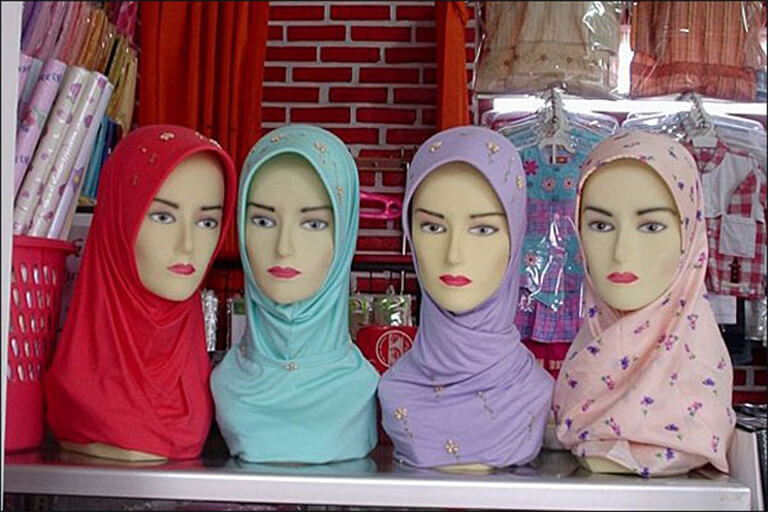Muslim Voices — Mirza

Audio transcript:
0:00:06:>>ROSEMARY PENNINGTON: Welcome to "Muslim Voices." I'm Rosemary Pennington sitting in for Manaf Bashir this week. The role of women in Islam is a heated topic on Internet message boards and college classrooms and even on the street. The mere mention of those two words - women, Islam - produces a strong reaction, both from those who see Islam as a force for equality and from those who see the religion as oppressive of women. March is Women's History Month in the U.S., and the next two weeks, "Muslim Voices" is launching an occasional series exploring women in Islam. Over the course of the series, we'll learn about the experience of being female and Muslim from a wide array of sources, including scholars, critics and Muslim women themselves. This week features Fort Wayne, Ind.-based Uzma Mirza. Mirza considers herself a thoroughly Westernized Muslim woman. In her roles as architect, artist and philanthropist, Mirza says she's constantly trying to find her place in the world as well as reconcile her faith in Islam with her sense of self.
0:01:15:>>UZMA MIRZA: All my work - art, architecture, my writing - I'm in the process of publishing a manuscript - a couple of them - it's all woven to actually critique yourself. And that's the hardest thing. I was always adamant since I was 5 that there has to be a God because that is the only thing that safeguards who I am as not just a woman but a Muslim woman, but a human being. The pool of water is constantly being stirred. There's no stagnancy. And generally, religion has this tendency to be stagnant. But Islam in its integral aspect and the sayings of the Prophet Muhammad, peace be upon him, who was, as Muslims consider, the final brick in the wall of profits from Adam, Moses, Abraham, Noah and to Jesus, to Prophet Mohammed - they all spoke about women's rights, safeguarding the ill, the sick, the woman, the orphan, the orphan's property. Now, the prophet was against anybody abusing women's rights. A chapter in the Koran speaks about women. A woman gets up and basically tells the prophet about how her husband is treating her. I believe today's Muslim men are hijacking Islam - many of them. Not even just Muslim - even non-Muslims. And this problem is not a religious problem. This problem is actually a human problem. You have to separate between Islam and the prophet's teaching and what Muslims do. And I think today, Muslims, the men, are squeezing women so much that I've been told to leave in a mosque because - from a floor by certain men. But another man defended me by quoting a sunnah of the prophet, and he kept quiet, and I kept praying. I didn't listen to him. I stand for women's issues in the likeness of all prophets. I mean, you name one prophet that did not do that. Actually, the prophets are the only people in history who actually stood up for women's and men's and the orphans' and the elderly rights. Who else has done so much of standing up for human rights? We blame God. We blame religion. Why don't we blame ourselves?
0:03:27:(MUSIC PLAYING)
0:03:33:>>ROSEMARY PENNINGTON: Uzma Mirza is an architect, artist and philanthropist based out of Fort Wayne, Ind. Next week, our series on women in Islam features Bangladeshi writer Taslima Nasrin. This has been "Muslim Voices," a production of Voices and Visions in partnership with WFIU Public Media from Indiana University. Support for Muslim voices comes from the Social Science Research Council. You can subscribe to our podcasts in iTunes or join the discussion on our website. Find us online at muslimvoices.org.


 IU Global
IU Global